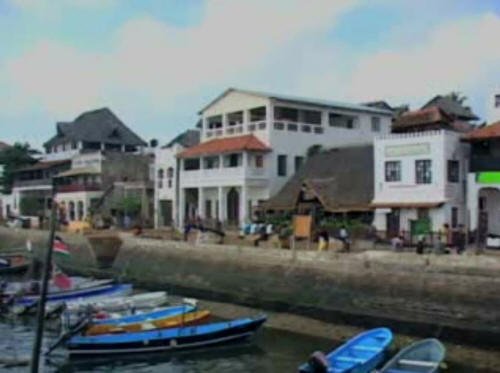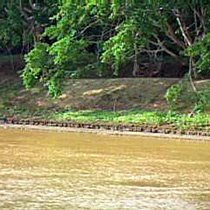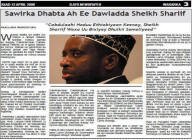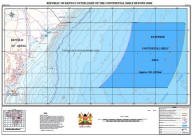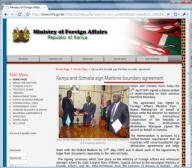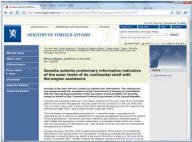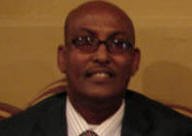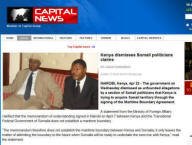Queries as Qatar seeks to grow food in Kenya
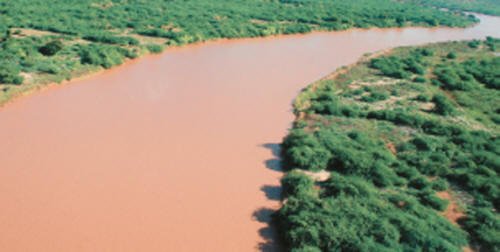
Tana River delta, said to be where Qatar will be given land for growing crops. Photo/FREDRICK ONYANGO
In Summary
- Ruto denies knowledge of the deal while his PS welcomes the concept.
- Other Gulf states, including Saudi Arabia and the United Arab Emirates, have also been negotiating leases of large tracts of farmland in countries such as Sudan and Senegal.
- Qatar has already reportedly struck deals this year to grow rice in Cambodia, maize and wheat in Sudan and vegetables in Vietnam.
The deal with the government of Qatar is similar to a model that has been widely criticised by agricultural experts worldwide and mainly involves poor African countries and rich nations or corporations especially from the Middle East.
Second port
In the Kenyan case, Qatar will, in exchange for the land, fund construction of a new Sh2.4 billion port on Lamu island to serve as Kenya’s second port after Mombasa. The deal was struck during President Kibaki’s visit to Qatar in late November.
At the time, the Presidential Press Service only revealed that the government of Qatar had agreed to fund construction of a second port in Lamu at a cost of Sh2.4 billion and that the Gulf state had expressed interest in obtaining land in Kenya to grow food but the acreage was not given.
But it has now emerged that the land in question is part of the fertile Tana River delta in Coast Province, the same stretch where plans by Mumias Sugar Company to build a sugar factory have raised objections from pastoralists claiming that their animals will lack pasture and the environment will be destroyed.
Agriculture minister William Ruto said he was not aware of the deal and could, therefore, not comment on it. His permanent secretary, Dr Romano Kiome, however, welcomed the concept, saying Kenya needed to attract more investors.
He said: “I can confirm that it works in other countries and why not in Kenya?”
Eastern Africa Farmers Federation Union president Philip Kiriro questioned the rationale of the Government.
“Are we saying that a foreign government can produce food here and feed its own people and the Kenyan Government cannot support us to feed ourselves?” he asked.
According to the Guardian News and Media of London, the deal is the latest example of wealthy countries and companies trying to secure food supplies from the developing world.
Other Gulf states, including Saudi Arabia and the United Arab Emirates, have also been negotiating leases of large tracts of farmland in countries such as Sudan and Senegal since the global food shortages and price rises earlier this year, the group’s website reported.
The deal is a reminder to another controversial agreement between President Kibaki and the then Prime Minister of Thailand, Mr Thaksin Shinawatra, who was later deposed, for Kenya to export wild animals to Thailand.
But conservationists and politicians opposed the deal saying it would deny Kenya tourism revenue as visitors from Thailand who might have preferred Kenya for its wildlife would not visit.
There were also questions about whether the animals to be exported could withstand the long distance between the two countries. Eventually, the deal fell through and has not been mentioned again.
The Guardian quoted the director of the Presidential Press Service, Mr Isaiah Kabira saying: “Nothing comes for free. If you want people to invest in your country then you have to make concessions.”
The newspaper reported that the deal is likely to cause concern in Kenya because fertile land is unequally distributed. Several prominent political families own huge tracts of farmland, while millions of people live in small parcels.
The country is also experiencing a food crisis, with the Government forced to introduce subsidies and price controls on maize after poor production and planning caused the price of the staple maize flour to double in less than a year.
This week, the Government placed an advertisement in the papers inviting people interested in importing one million bags of yellow maize.
By building docks in Lamu, Kenya hopes to open a new trade corridor that will give landlocked Ethiopia and the autonomous region of Southern Sudan access to the Indian Ocean.
Mr Kabira said that if the financing was agreed, construction of the port would begin in 2010.
Qatar, which has large oil and gas revenues, imports most of its food, as most of its land is barren desert and just one per cent is suitable for arable farming. It has already reportedly struck deals this year to grow rice in Cambodia, maize and wheat in Sudan and vegetables in Vietnam.
Much of the produce will be exported to the Gulf. Qatar’s foreign ministry in Doha did not return calls, but Mr Kabira said that its intention was to grow “vegetables and fruit” in Kenya.
The area proposed for the farming project is near the Tana Rver delta where the Kenyan Government owns nearly 500,000 hectares (1.3 million acres) of uncultivated land.
But a separate agreement to allow Mumias to grow sugarcane and build a factory in the area has attracted fierce opposition from environmentalists who say a pristine ecosystem of mangrove swamps, savannah and forests will be destroyed.
Pastoralists, who rear up to 60,000 cattle to graze in the delta each dry season, are also opposed to the plan. The sudden rush by foreign governments and firms to secure food supplies in Africa has some experts worried.
Mr Jacques Diouf, director general of the United Nation’s Food and Agricultural Organisation (FAO), recently spoke of the risk of a “neo-colonial” agricultural system emerging.
The FAO boss said some of the first overseas projects by Gulf companies in Sudan, where more than 5 million people receive international food aid, showed limited local benefits, with much of the specialist labour and farming inputs being imported.
Additional details from The Guardian
Source: http://www.nation.co.ke/News
